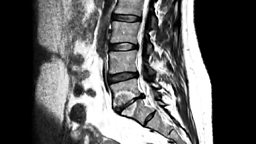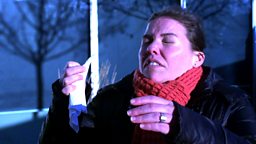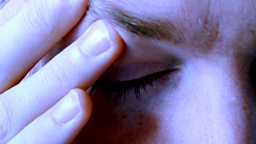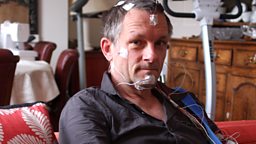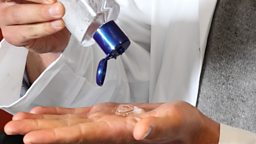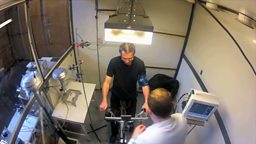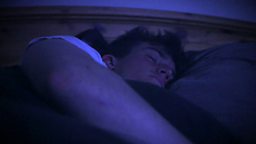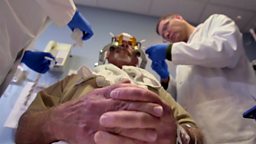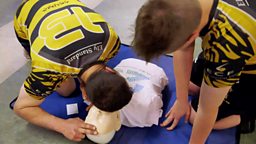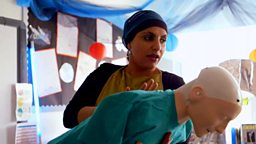Is it possible to cure hayfever?
Michael Mosley goes in search of a treatment for the annual affliction of hayfever. It affects nearly a quarter of the UK population - Michael included.
Hayfever is caused by your body treating pollen, fungal spores or other tiny inhaled particles as if they were an invading parasite and mounting its defence mechanism.

This is caused by a part of your immune system, called IgE antibodies, going into action and causing the release of histamines. Histamines create a number of effects which, if you really were being attacked by a parasite, would help your body defend itself, such as causing fluid to leak from your blood vessels, carrying defensive white blood cells.
Unfortunately the itching, inflammation and fluid leakage they cause in the eyes and nose in the case of hayfever is just intensely annoying.
There are two easy ways to treat your hayfever:
- Antihistamines, as their name suggests, help block the histamines or their effects. However, many (especially the older ones) have the side-effect of making you drowsy. It’s worth experimenting with different brands in order to find one that works for you.
- Another really effective way to treat hayfever is with a nasal steroid spray. In order for these to be most effective, though, you should start using one two weeks before you start developing hayfever symptoms. To do that, you really need to identify when your season is:
The majority of hayfever sufferers are allergic to grass pollens, and the main season for these is midsummer. However, a lot of people are allergic to tree pollens (trees such as birch and alder), and that season starts early, in the spring. Others are allergic to other species of plant or fungal spores and these have their different seasons too.
One resource that might be useful is the European Pollen Diary Scheme (see link below) in which you keep a track of your symptoms online, and these are matched to pollen levels from different species in your area. It can help you identify which species you are allergic to, and in return your data is helping researchers study allergies.
Research is continuing into ways to treat allergies more permanently, but training your immune system not to react unnecessarily. This approach, called immunotherapy, has been around for about 100 years, and for a while it has been possible to have a series of injections to treat severe hayfever.
However, a team at Imperial College London and the Royal Brompton Hospital have developed a pill version. You take a small daily pill of freeze-dried pollen and your body eventually stops reacting to it. The downside is that you have to take it every single day for 3 years – and it’s not effective for everyone. The pill is only available on prescription for those with severe enough hayfever to make it worthwhile.

